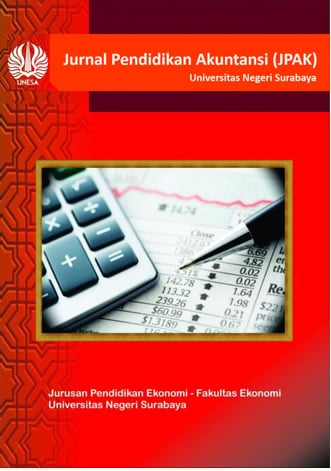Pengembangan Bahan Ajar Practice Set Akuntansi Perusahaan Dagang Berbasis Flipbook untuk Kelas XI Akuntansi
DOI:
https://doi.org/10.26740/jpak.v10n3.p242-256Keywords:
Material teaching, trade accounting practice set; flipbookDownloads
Download data is not yet available.
Downloads
Published
2022-12-31
How to Cite
Indraswari, D., & Susilowibowo, J. (2022). Pengembangan Bahan Ajar Practice Set Akuntansi Perusahaan Dagang Berbasis Flipbook untuk Kelas XI Akuntansi. Jurnal Pendidikan Akuntansi (JPAK), 10(3), 242–256. https://doi.org/10.26740/jpak.v10n3.p242-256
Issue
Section
Article
License
Authors who publish with this journal agree to the following terms:
- Authors retain copyright and grant the journal right of first publication with the work simultaneously licensed under a Creative Commons Attribution License that allows others to share the work with an acknowledgement of the work's authorship and initial publication in this journal.
- Authors are able to enter into separate, additional contractual arrangements for the non-exclusive distribution of the journal's published version of the work (e.g., post it to an institutional repository or publish it in a book), with an acknowledgement of its initial publication in this journal.
- Authors are permitted and encouraged to post their work online (e.g., in institutional repositories or on their website) prior to and during the submission process, as it can lead to productive exchanges, as well as earlier and greater citation of published work (See The Effect of Open Access).

Jurnal Pendidikan Akuntansi (JPAK) is licensed under a Creative Commons Attribution-NonCommercial 4.0 International License.
 Abstract views: 530
,
Abstract views: 530
, PDF Downloads: 425
PDF Downloads: 425



